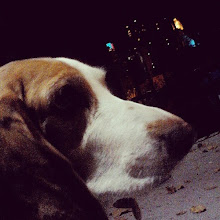If you're just joining me I'm counting down my 20 favorite Morrissey Non-Singles each weekday up until his show October 29th at The Orpheum in beautiful downtown Minneapolis.
Obviously you can scroll down to have a look at the previous posts (as well as a couple of my posts that have turned up on the Newest Industry blog (please check that blog out when you have a chance. All Twin Cities Everything!).
If you don't feel like scrolling down, here's what the list looks like so far:
20. One Day Goodbye Will Be Farewell
19. Driving Your Girlfriend Home
18. Munich Air Disaster 1958
17. Seasick, Yet Still Docked
16. I Don't Mind If You Forget Me
15. Sister I'm A Poet
14. On The Streets I Ran
13. There's A Place In Hell For Me And My Friends
And so, here we find ourselves:
#12. Why Don't You Find Out For Yourself? (Morrissey/White)
From the album Vauxhall And I
Key Line: "Don't rake up my mistakes, I know exactly what they are... And what do you do? Well, you just sit there..."
Morrissey's Vauxhall And I is, pretty much indisputably, the high-water mark for his solo career. It's a brilliantly constructed album that couples Morrissey's growing pathos with a band that, after a couple of albums, has finally figured out how best to back their singer musically. Tracks like, "Now My Heart Is Full," "Hold On To Your Friends," and, of course, "The More You Ignore Me The Closer I Get," could really only have come from this group of musicians at this exact time.
The production of Steve Lillywhite, though, is really the glue that brings the album together. While the atmospherics on those singles is palpable, his production really shines through on some of the non-singles. Tracks like, "Lifeguard Sleeping, Girl Drowning," and "I Am Hated For Loving" would have withered away in less capable hands.
The best example of all three of these elements is this track. "Why Don't You Find Out For Yourself?" To those of us who have been following Morrissey throughout the 2000's, it's easy to lump this song in with many of the "victim" songs that have come to dominate his canon. However, aside from the likes of "Frankly, Mr. Shankly" and "You Just Haven't Earned It Yet, Baby," Morrissey's portrayal of himself as a victim was typically limited to his role in specific personal relationships. However, by 1994, Morrissey had suffered more slings and arrows professionally than any sane man could stand.
Once the darling of the English pop scene (a role he obviously relished), Morrissey's Kill Uncle was a clunker of an album that pushed him deeper into the "Rumours" column of the tabloids. And, while Your Arsenal brought with it critical acclaim, the success was short-lived thanks to Mozzer's controversial appearance (and subsequent non-appearance) at the Madstock festival. He quickly found himself squarely in the sights of both the critics and the public. Throw in the perpetual disputes with his managers and record labels and it's no surprise that Moz found himself lashing out.
Immediately, Morrissey lays bare his predicament. "The sanest days are mad, why don't you find out for yourself?" is at once a cry for help and an admission that he doesn't expect anybody to be able to relate to his problems. "Some men here, they have a special interest in your career. They want to help you to grow and then... siphon all your dough..." is a none-too-slight allusion to his brewing court battle with Mike Joyce, which would famously make it's way to England's High Court the following year.
Morrissey, of course, would expect nothing less. "You'll never believe me, so, why don't you find out for yourself? Sick down to my heart, but that's just the way it goes." After casting himself as the "outsider" his entire career, Morrissey finally found himself standing alone after all. Nobody's walked the road he's walked, for if they had, they'd, "see the glass hidden in the grass."
Musically, Alain Whyte's tune was supposedly a much rougher track originally, with a distorted electric guitar taking the lead. As legend goes, that version of the track is the version Morrissey's vocal take comes from, which goes a long way to explain the audible vitriol in the vocal delivery.
As mentioned earlier, the impact of Steve Lillywhite on Vauxhall cannot be overstated. Altering the original take by reducing the electric lead to merely drifting in and out of the mix and bringing the acoustic guitar up to take the lead proved to be a stroke of genius. By making Boz Boorer's high-harmonies far more prominent the song attains a "battered-but-still-punching" fragility that matches the lyrics.
"I've been stabbed in the back so many, many times I don't have any skin, but that's just the way it goes." As it turned out, there were more stabs to come. And the wound would never completely heal.

